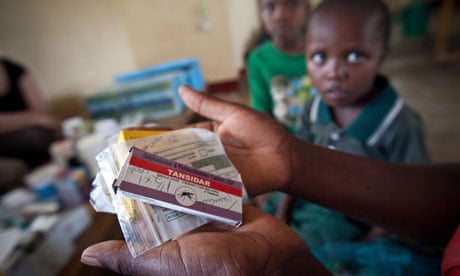A few weeks ago, in a remote Rwandan village, I met a nurse who had set up her own clinic to serve the local residents. From a single, brightly decorated room, she was prescribing medicines and administering basic care that patients might otherwise have to walk 15 miles or more to reach.
It was late evening and she looked tired. A handful of patients were still waiting anxiously to be seen and my eyes were drawn to a very young child clinging to an elderly lady – probably the grandmother. The scene took me straight back to my childhood years, growing up in a Kenyan village, and I hoped this child would survive, thrive and realise her full potential for Rwanda.
Thanks to the efforts of dedicated frontline health workers affiliated to organisations such as the One Family Health Foundation, she just might. This private enterprise model enables local nurses to own and operate medical clinics, bringing basic healthcare services to rural communities across Rwanda while also enabling them to earn enough to support their families.
The clinic I visited is just one of a network that is being established by nurses in this way and shows what can be achieved if we think creatively about how to improve access to health in developing countries. Innovation – coming up with fresh ways of overcoming the challenges we meet in these locations – as well as working in partnership with others is key to making healthcare for all a reality.
Often it is not brilliant academics but those living and breathing a challenge that have the best solutions.
A decade ago, I was working as a physician in Kenya, treating conditions that are all too common in children, such as pneumonia, malnutrition and severe malaria. In the face of resistance – and some prejudice – I also set up an HIV clinic in Kilifi, one of Kenya's poorest districts, to improve access to antiretrovirals.
Those years were hugely rewarding, but tough. They made me realise that if we were to truly change the face of access to healthcare, we would need to think bigger. We would need to change the system.
As a result, I took the difficult decision to leave my patients and in 2005 joined GlaxoSmithKline. I hoped this move would provide me with a platform to advocate for the changes to the healthcare system that my patients so desperately needed.
Eight years on, progress has been made but there is still plenty more to be done. The kind of issues we face, from fighting malaria to addressing malnutrition, are not challenges that any one organisation can tackle alone. Only by combining the skills and experience of different organisations, charities, governments – by collaborating as we innovate – can we drive genuine social change.
Part of my role involves developing these partnerships. One example is our recent collaboration struck with Save the Children. Launched in May, the aim is to bring together different types of expertise to help save the lives of one million children.
Nearly seven million children under five die each year from preventable diseases and, despite some improvement in the reduction of child mortality rates, more needs to be done. With Save the Children, we want to address areas that need urgent attention: developing child-friendly medicines to reduce child mortality and newborn deaths; improving access to vaccines and medicines; and the supply of simple, nutritious food.
Our partnership is already in action. We are working on programmes in the Democratic Republic of Congo and Kenya; and we are finding ways of combining GSK's science with Save the Children's on-the-ground experience. For example, we are reformulating an antiseptic commonly used in mouthwash into a gel for cleansing the umbilical cord stump of newborn babies. This has the potential to prevent thousands of deaths from infection during a baby's first few weeks.
This is just one example of using technology differently to tackle challenges in developing countries. Another is our collaboration with Vodafone. Together with the company and other partners, we are piloting a mobile-phone based programme in Mozambique. If successful, it could increase the proportion of children covered by vaccination in Mozambique by an additional 5-10%. Ideas include helping health workers to check a child's vaccination history on the spot by using the parent's mobile phone number.
Across the private sector, there are other great examples of companies thinking differently about how they work in developing and emerging markets. Coca-Cola has improved its water use efficiency in India, a country which has over 17% of the world's population but less than 4% of the world's freshwater resources. Consumer goods business Unilever is working with local farmers in Indonesia to boost livelihoods from growing black soybeans, a key ingredient.
There is much work still to be done, but partnerships hold promise. Not only do they take us a step closer to making sure safe, effective healthcare is finally within everyone's reach. They also harness the innovation, technology and creative thinking that could enable healthcare in developing countries to not just match that of the developed world, but surpass it.
Allan Pamba is director of public engagement and access initiatives in GlaxoSmithKline's developing countries unit. Prior to joining GSK, he trained and worked as a physician in Kenya

Comments (…)
Sign in or create your Guardian account to join the discussion